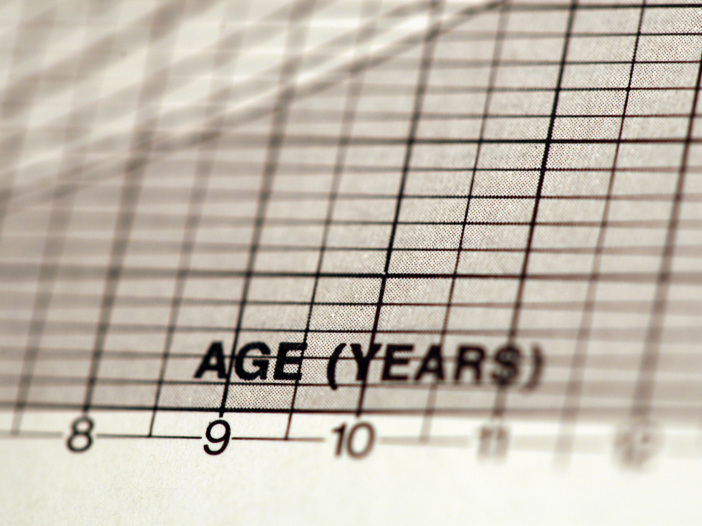
Individuals applying for Social Security Disability Insurance (SSDI) may see higher approval rates as they age. That’s because the Social Security Administration’s (SSA) rules change based on a number of factors, including age.
Age and Disability Grid Rules
To qualify for SSDI benefits regardless of age, you must have a medical condition that prevents you from working for at least 12 consecutive months or that results in death. The condition must be severe enough that you cannot engage in substantial gainful activity (SGA). The SSA sets the SGA limit each year; for 2025, the SGA limit is $1620 per month. Individuals working above SGA do not qualify for disability benefits.
In addition to meeting the medical criteria for disability benefits, the SSA uses a grid of medical-vocational rules, often referred to as the “grid rules” or “grids,” to determine disability eligibility. These rules take into account your age, education, work experience, and residual functional capacity (RFC) to determine whether you are disabled. After age 50, the grids may be more favorable for claimants, as it is generally considered more difficult for older individuals to transition into new lines of work.
The grid rules are tools the SSA uses to determine your capacity for work. Persons aged 50 to 54 fall into a category called “closely approaching advanced age’ while those 55 or older are considered “of advanced age.” The SSA considers that aged individuals may find it harder to adapt to new work environments. This may benefit older claimants seeking disability benefits.
Medical Impairment and Severity As You Age
Many disability claimants receive denials because their medical impairments, while serious, are not severe enough to meet SSA’s definition of disability. But, some conditions, including common ones such as diabetes, degenerative disc disease and gout, become more severe as you age. If your impairments worsen with age, you may have a stronger basis for your SSDI disability claim.
Remember that it is common to receive a disability denial in the early stages of a progressive disease. Individuals should work with their treating medical providers and a qualified Social Security disability attorney to challenge a former denial if their condition worsens.
The SSA recognizes that progressive conditions worsen over time creating more severe impairments in the future. And, that as a worker nearing retirement, it may be more difficult for you to adjust to new work.
While SSA and the vocational experts working on your claim determine whether you can perform work of any kind at a substantial level, but they also consider if you can adjust to new work. An older adult with limited experience in a new trade and one whose progressive medical impairments seriously interrupt their activities of daily living will find it difficult to maintain a job and present a strong SSDI claim.
Social Security’s Retirement Age and Disability Benefits
When a disabled person receiving SSDI benefits reaches Social Security’s full retirement age (FRA), their disability benefits convert to retirement benefits. A person’s FRA varies depending on the year they were born. FRA is the age at which individuals receive full Social Security retirement benefits without any reduction due to early retirement. If you were born in:
- 1937 or earlier: Your full retirement age is 65.
- 1938: Your full retirement age is 65 and 2 months.
- 1939: Your full retirement age is 65 and 4 months.
- 1940: Your full retirement age is 65 and 6 months.
- 1941: Your full retirement age is 65 and 8 months.
- 1942: Your full retirement age is 65 and 10 months.
- 1943–1954: Your full retirement age is 66.
- 1955: Your full retirement age is 66 and 2 months.
- 1956: Your full retirement age is 66 and 4 months.
- 1957: Your full retirement age is 66 and 6 months.
- 1958: Your full retirement age is 66 and 8 months.
- 1959: Your full retirement age is 66 and 10 months.
- 1960 and later: Your full retirement age is 67.
It’s important to note that individuals can elect to receive Social Security retirement benefits as early as age 62, but your monthly benefit will be reduced from what it would be at your full retirement age. On the other hand, if you delay receiving benefits past your full retirement age, your benefit amount will increase. This is an important decision that should be made based on your personal financial situation and health considerations.
Social Security Disability Attorneys in Winston-Salem, NC
Many claimants choose to work with a qualified Social Security Disability Attorney on their SSDI benefits claim to improve their chances of success. If you or someone you know would like a free consultation on your claim, contact our attorneys today. There is no fee for the consultation or our services unless we win your claim. We work with claimants at every stage of the process from initial application through hearings and appeals.



